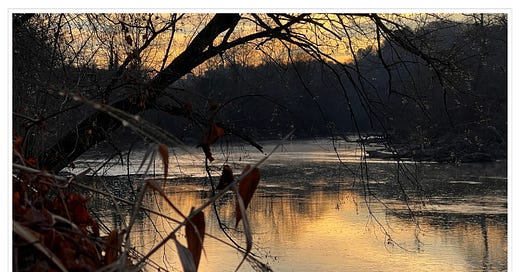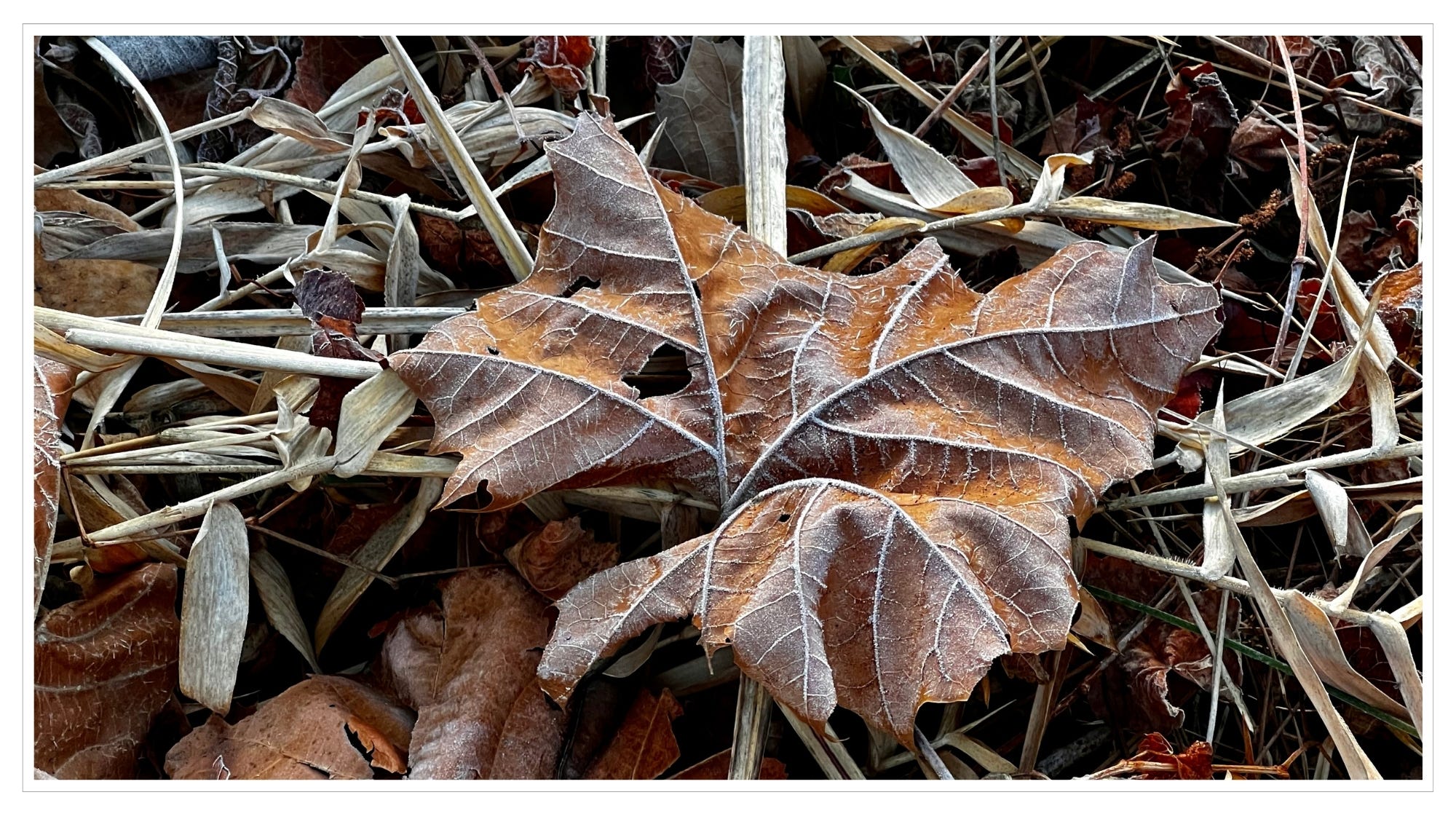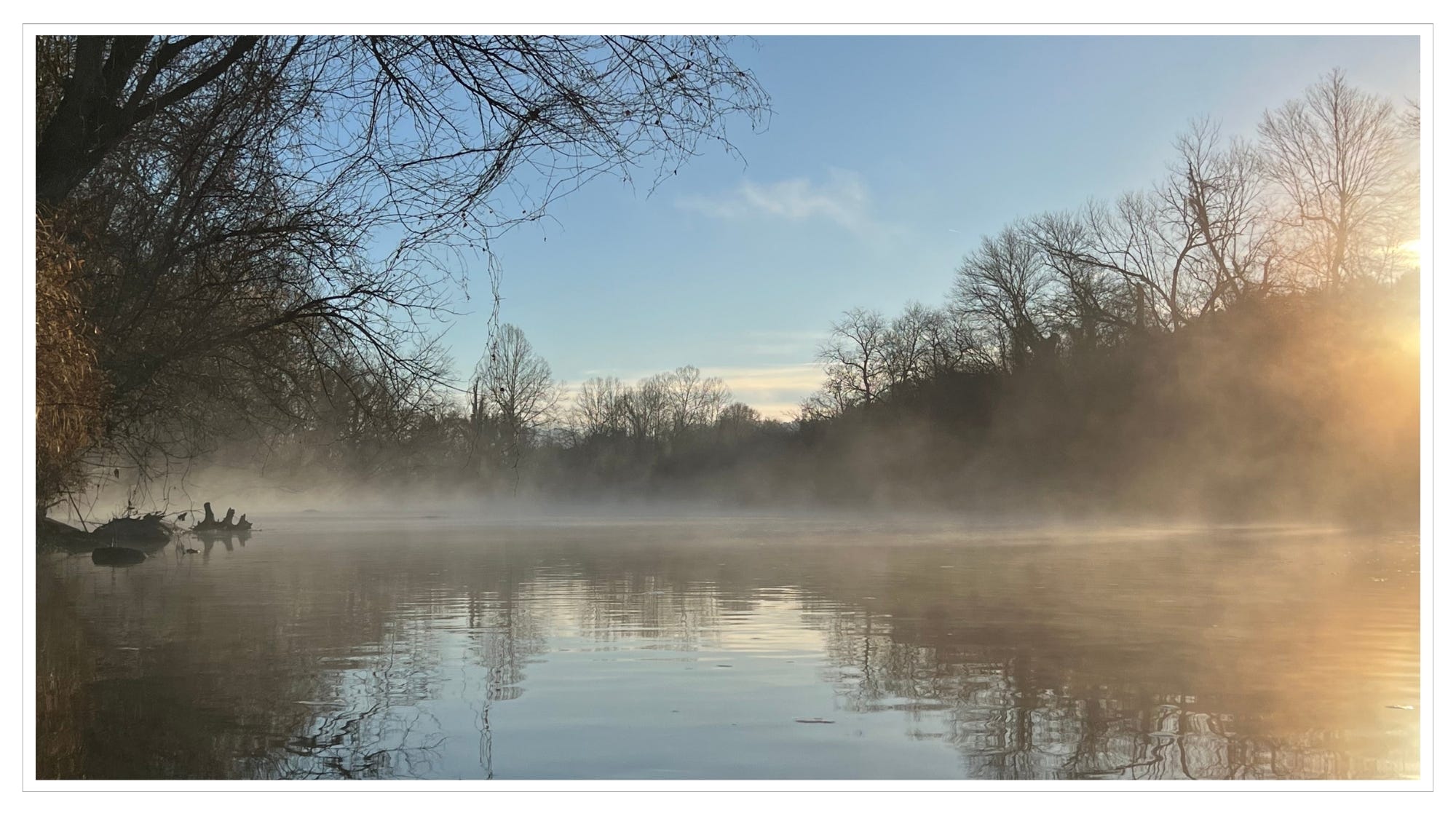Dear Friends and Family,
Before we begin this week’s reflections, permit me to tell you how much it meant to me to share this recent homecoming with you and feel so embraced by your felt presence and kindnesses. Thank you.
Recently, I have seen a “show of hand” from new faces. By show of hand, I mean that little heart button on the page, which says to me simply, “I am here.” I’ve come to love seeing your names and faces. You make Beyond the Comfort Zone more personal and liberate these words from the echo chambers of my mind.
And for you who are inclined to comment, thank you for what you share. I have said this before, and I’ll keep saying it: What you bring enriches every post and inspires where we go. If you’re so inclined, drop into the comments section end of week before a next post and have a read. Feel free to respond to one another. You’re creating a rich tapestry there.
I also understand that these meditations lend in many of you a felt silence that you wish to enter into and linger. Please follow your inner lead.
Lastly on comments, sometimes you write something I wish to sit with for a day or so before responding. Know that I will always respond—unless for some reason, I don’t see it. If you don’t hear from me by the next post, give me a nudge by commenting anew. Hey Renée! Did you see my comment?
With this florescence of my thanks, I give you this week’s reflections. . . .
Ever in gratitude and with love,
Renée
Black char from last night’s campfire for last night’s dinner shimmers thick with frost. We ate pheasant with our fingers. It may have been the last pheasant hunt with Grandpa, he said. He didn’t say, but I felt it to be so that sharing that hunt for my first supper by the river was his way of saying Welcome home, Mom. Last year’s leaves from sycamore trees tumble across last summer’s grass golden now, spare, and glistening. A young man runs by in shorts. I can hear my grandmother’s voice echo across the years and nearby hills, “Doesn’t he know he’ll catch cold?” Fat robins I haven’t seen for two Novembers search the ground for grub. I drive Patton to Broadway to Merrimon and know my way. I know where there’s good coffee, when to catch the farmers’ market, and who to call to fix the van. I find comfort in every known. Comfort in the chicken soup Mary made when she handed me a year’s worth of mail, comfort in riding shotgun and not behind the wheel, comfort in a knock at the door and endless hug that follows. Comfort in the hue of sunrise here, the way it blushes morning air. Sunrise over the French Broad River, a river so not new to me I could fail to see. There is nothing here that is not familiar. And yet. Never have I seen the sun rise over the French Broad. Never have I nighted down by this river as I have since Sunday when one son who has a claim on this little stretch of earth offered that I set up camp here. This was his welcome—that I might journey on while at home.
I have not left the way of life in 102 square feet, the way of being so close to the elements that when the wind blows, I feel the shake, and when the rain falls, I am just metalskin shy of being soaked, but unlike too many today, I am dry, and I am warm. I am safe, and I am cared for, and though I am (technically) unhoused, I am home, and this is where our winter journey begins: coming face to face with what it means to be home in the familiar in wholly unfamiliar ways.
It is said that wonder springs when everything same seems suddenly strange.1 It is said that the ground of wonder is the seedbed of philosophy,2 and what is philosophy if not the love of wisdom, and what is wisdom if not the discernment to act on what we come to understand, and what is it to understand if not to stand beneath that which we can never know by the mind alone but bear by the breath itself?
“What we are now going to do, therefore, is to learn about ourselves, not according to me or to some analyst or philosopher—because if we learn about ourselves according to someone else, we learn about them, not ourselves—we are going to learn what we actually are.3
We become philosophers unto ourselves when we wonder. We come to wonder when we meet a moment with the fresh eyes of a child. In the life of the child, “it is not half so important to know as to feel.”4 Of feeling, we are not referring to the drama of emotion. We are letting impressions from the world ignite across the whole of us. Watch a child squeal with glee. There is not one cell of the body untouched by this feeling. Glee rises up out of the cells themselves. It comes in a flash, as when a butterfly takes flight and catches the child’s eye. The child’s whole body is soaked in the senses and there, spreads feeling across the whole. We come to such feeling when we let ourselves unknow and not know, which are not the same. To unknow is to let go of what we believe we know and of believing that we know. Here, we come to not knowing, a moment free of opinion, prejudice, expectations, ideas, and ideals. We come to the living present as a voice that has a say. We can trust this voice, but first, we must die to yesterday and tomorrow, to clinging and expectation, to the quicksand of self-image and comfort in the known. We come to what is as it is.
You can see that I’ve spun quite a web around my own comfort in coming home. The true comfort is to meet the known unknown. The familiar can be a danger zone as the ground of belief in how things should and could be. The familiar can become soil fecund with disillusionment—even in its comforts and perhaps because of them. By disillusionment, we are referring to the disappointment we come to, having discovered that something is not what or as good as we believed it to be. Do you see how we get trapped in the web of our own believing, in the desire for comfort as we seek it in what we know?
Comfort finds us.5 It finds us in the way that reverie does in the throes of sorrow.6 It can only do so when we let go—completely. It finds us because the seeking has nothing to know. Comfort comes borne of hope, hope not for something to happen but hope that simply is. And it catches us by surprise in the same way that the same can seem suddenly strange. How so very intertwined are hope, wonder, and comfort. But they can only be true when we come without clinging and absent expectation—when we come to the moment with nothing at all.
Forget all you know about yourself; forget all you have ever thought about yourself; we are going to start as if we knew nothing.
It rained last night heavily, and now the skies are beginning to clear; it is a new fresh day. Let us meet that fresh day as if it were the only day. Let us start on our journey together with all the remembrance of yesterday left behind—and begin to understand ourselves for the first time.”7
Jeff Malpas, “Beginning in Wonder: Placing the Origin in Thinking,” in Philosophical Romanticism, ed. Nikolas Kompridis (New York: Routledge, 2006), pp. 282–298.
Aristotle, Metaphysics. trans. Rev. John H. M’Mahon (London: Henry G. Bohn, 1857).
J. Krishnamurti, Freedom from the Known, ed. Mary Lutyens (San Francisco: HarperCollins, 1969), p. 19.
Rachel Carson, The Sense of Wonder (New York: HarperCollins, 1956), p. 58.
Some of these reflections were inspired by a Substack Notes post I published on Monday and correspondence that transpired with
and . Thank you both!Robert Romanyshyn, The Soul in Grief: Love, Death, and Transformation (Berkeley: Frog Publishers, 1999).
Krishnamurti, Freedom from the Known, p. 20.









The two things that resonated deeply with me while reading this beautiful piece:
The winter journey can be a time of residing within the familiar in an unfamiliar way. So often in the winter we cozy in and shift to autopilot, but what if we cozy in and allow for an unfurling? We can use the winter journey as a cocoon to create anew. An intentional drawing inward.
"Everything same seems suddenly strange", this is how we embark on a journey without leaving home. We embrace the wonder you talk about, create space for it in our daily lives, and allow ourselves to be changed by it.
I love seeing the pictures of your home river!
Before I share what is prompted by this particular reflection, let me once again welcome my beloved friend Renee home, (at least to one of them, for I imagine she has stretched her sense of home in this past year to embrace much of the North American Continent)! AND.... Renee, you are welcome to our table anytime I am making chicken soup! I may start making it more often if that will entice you to come "wonder" in person with us!!
In reading today, I'm remembering something I've known about myself since I was a teenager, but haven't really noticed recently. When something becomes so familiar, we tend to stop seeing it with the conscious mind... which can only hold so much at one time. As a person with what they now refer to as a "neurodiverse" brain, when I am reading my attention gets caught on something of interest and I am temporarily unable to fully receive what is shared beyond that sentence or sentence fragment as I somewhat involuntarily mull over what has been sparked in body, mind, and heart. With the multidimensional richness I encounter in reading these reflections, it can take me several readings before I can identify and digest all that grabs my attention and inspires my own reflection. Thank you, Renee, for inviting us to learn about ourselves here, with each other. I'm not sure I fully understand where Krishnamurti is coming from when he says, ".... because if we learn about ourselves according to someone else, we learn about them, not ourselves... ". For I have experienced great learning about myself in relationship encounters. In fact, I need others and community to really fully unfold into, "...what we actually are". To paraphrase Valerie Kaur, founder of REVOLUTIONARY LOVE, and author of See No Stranger, if we are truly one in our deepest reality, then the "other" is a part of ourself "we haven't met yet".
As to the whole of this reflection, it is so rich with insight it would take me many more readings and much more time to digest than I am giving to this mornings comment. But there was one stream of thought that opened up for me that I hope to give time to in my own meditations. I have been working with Thomas Keatings "bullseye" model of levels of awareness, the outer ring being ordinary awareness (ego related... and necessary in the physical realm), the inner ring being spiritual awareness, and the bullseye being divine awareness. At this point in my life I have hope to experience my spiritual awareness more often as my physical faculties fade, and perhaps even joined with my ordinary awareness to enrich the beauty I experience in this world of substance. And though I would wish to have more influence over moments of "divine" awareness, I must surrender to what Keating suggests; that there are practices that can cultivate an open receptive presence, but it is grace that "finds us" in those fleeting moments of divine awareness that many of us experience in life and long to repeat, and ... "It can only do so when we let go—completely"!